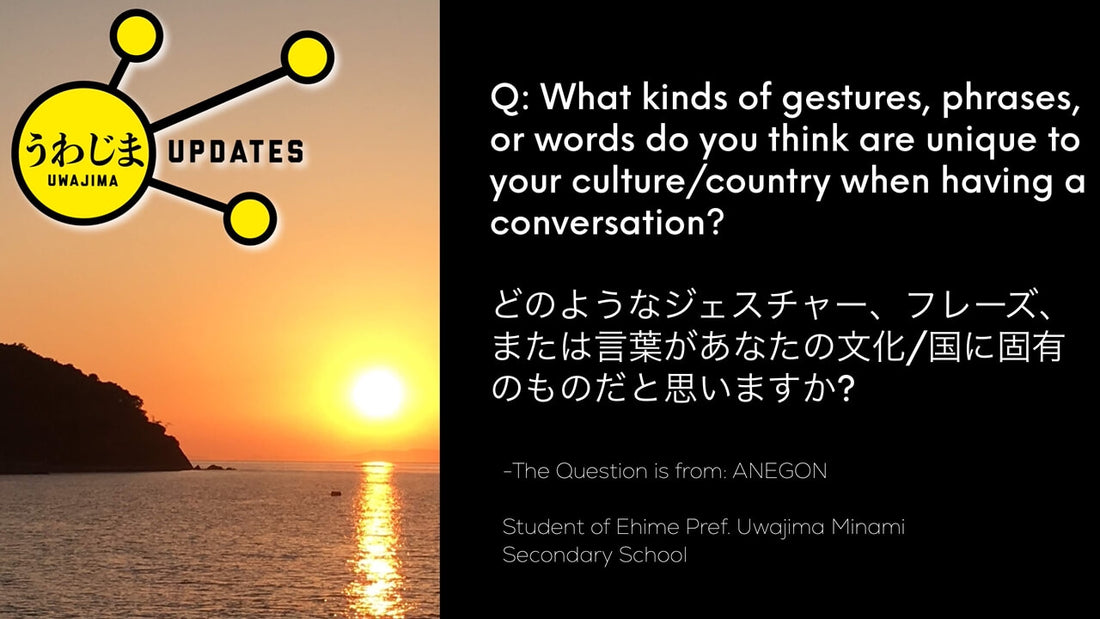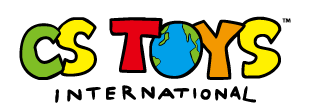
Q: What kinds of gestures, phrases, or words do you think are unique to your culture/country when having a conversation? / どのようなジェスチャー、フレーズ、または言葉があなたの文化/国に固有のものだと思いますか?
Masaki SeikeShare
The Question is from: ANEGON
Answer from LuisKiller73 (France):
Well that was a hard question to think about. so to answer it, in France for lunch and mostly in restaurant, the staff members that serve the dishes say to the clients "Bon Appétit" nowadays we don't really say it anymore during lunch with family or friends. another good exemple is during a drink with friends or neighborhood we said "Santé". when it is to celebrated something like a birthday or someone graduation or who when he/she got a job we say " a ta santé". one last variation is for exemple when celebrating a wedding to the couple we say " a votre santé". i'm maybe forgetting some but those are the most common exemple i could think of.
まあ、これは考えるのが難しい質問でした。そうですね、例えばフランスのレストランで昼食をすると、料理を提供するスタッフはお客に「Bon Appétit(ボナペティ:どうぞお召し上がりください)」と言います。でも、最近では、特に家族や友人との昼食中にはもう使わなくなりましたね。もう1つの例を上げると、友人や近所の方と一緒にお酒を飲んでいる時などは、「Santé(健康に!)」と声を掛け合いますね。誕生日や誰かの卒業のようなものを祝うとき、または友人が就職したとき、私たちは「 a ta santé(あなたの健康のために!)」と言いますね。これにはまだバリエーションがあって、カップルの結婚式を祝うときに、私たちは「votre santé(あなたの健康のために!)」と言います。まだ忘れているバージョンがあるかもしれませんが、フランス語でこれらはごく一般的な例ですね。
Answer from Daniel Eubanks (USA):
For me the phrase I use is "phantom rise" which is basically my way of saying phantom change to transform into the lupinrangers.
※スーパー戦隊「快盗戦隊ルパンレンジャー」での変身フレーズの解釈について:ルパンレンジャーでは「怪盗チェンジ(Phantom Change)」というセリフが変身する見せ場で使われる日本語の台詞ですが、これを私なりに英語で表現するとしたら、「Phantom Rise! 」ですね。こっちの方がかっこいいからね。
Answer from MallaWallaZoom (UK):
In the UK, we have lots of common slang words/phrases. "Cheers" can mean "thank you" as well as its usual use as the English version of "kanpai!" "Alright?" can be used as a greeting. "Stuffed" means full after eating. With money, pounds can also be called "quid" - £50 as "fifty quid" - and a thousand pounds can be called a "grand" - £5,000 as "five grand". If you accuse someone of "having a laugh", you mean they're saying something you don't believe (or don't want to believe). "What're you on about?" is another way of saying "what are you talking about?" or "what do you mean?" "Tad" means a little bit - "a tad scary". "Nip" and "pop" can both mean a quick visit - "I'm just going to nip down the shops". "Bog standard" means completely ordinary and unassuming. There are plenty more, too! There are also lots of regional dialects with their own unique slang. If you ever hear a Geordie (somebody from Newcastle) call you "pet", it's a term of endearment.
英国には、一般的なスラングの単語/フレーズがたくさんあります。「Cheers!」は一般的に「乾杯!」を意味しますが、同様に「ありがとう!」とか、時には「元気かい?」といった挨拶としても使用できます。食べた後に使う「Stuffed」とは満腹という意味です。お金では、「pound」は「quid」とも呼ばれ、「50ポンド」として50クイッド、 - そして1000ポンドは「グランド」と呼ぶことができ、「5グランド」とは5,000ポンドのことです。誰かが「having a laugh (笑っている)」ことを問い詰める時、つまり、その誰かはあなたが気づいていないこと、もしくは信じたくないことを言っているということです。(例:一体何を笑ってるの?)「What're you on about?」とは「What are you talking about? (何を話しているの?)」という言い方もできますね。「Tad」は「少し」を意味します - 「a tad scary (少し怖い)」。「Nip」と「Pop」はどちらもちょっと立ち寄るこを意味します - 「I'm just going to nip down the shops(ちょっとお店に行ってくるね。」「Bog standard」は、「極めて普通で、控えめなこと」を意味します。まだまだありますよ!独自のスラングを持つ地域の方言もたくさんあります。例えば、Gerodie (Newcastle地方出身者)なら、あなたを「Pet(ペット)」と呼んだとしたら、それは親愛を表す意味の言葉ですね。
Answer from Char350 (USA):
Similar to Japanese having "filler words" such as ええと (eeto) / えっと (etto) / えー (ē) in conversation, American English has equivalent filler words such as "like" / "uh" / "um" / "you know" to fill gaps between sentences or thoughts.
日本語の会話にもよく登場する「ええと(eeto) / えっと(etto) / えー(ē)」などの「つなぎ言葉(Filler Word)」と同様に、アメリカ英語にも文章や思考の間のギャップを埋めるためにの「like」/「uh」/「um」/「you know」などの「つなぎ言葉」があります。
Answer from Andrew Hager (USA) :
As I’ve only ever lived in the USA, one phrase that was unique to me in a conversation was a slang phrase in Spanish for “no worries” or “no problem” I learned from my brother-in-law when we flew to El Paso, Texas: “no hay pedo.” (Rough pronunciation: “no eye pay-though.”) It took me until I said it to a waitress at the hotel I stayed in that it was a Mexican profanity — one she couldn’t help laughing at, coming from a white guy. Turned out the literal translation was “no fart.” Hahahaha!! (It’s a true story.)
私はアメリカにしか住んだことがないのですが、私にとってユニークなフレーズの1つは、テキサス州エルパソに住む義理の兄から学んだ言葉で、「心配なし」または「問題ない」というスペイン語のスラングフレーズで、「¡No hay pedo! (発音:「ノー・アイペ・ド」)」でした。せっかく学んだ言葉ですから、私が泊まったホテルのウェイトレスにこの言葉を使ってみたのですが、彼女に大笑いされました。言うまで知らなかったのですが、それはメキシコでのやや下ネタな言い方、でも地元民は親しみを込めてよく使う表現だったそうです。そのウェイトレス、旅行者の白人男性がかなり砕けた話し方でこの言葉を使ったので、笑わずにはいられなかったようです。この「¡No hay pedo!」の「pedo」というのは文字通りの意味はなんと「おなら」。「¡No hay pedo!」とは「おならはしていないよ(何も問題ないよ)」という意味だったんですね。ハハハ!(実話です。)
This page is solely created for "Uwajima World Link," Office Seike's weekly FM radio program on Wednesdays, 1:00 PM- 1:55 PM JST, broadcasting from Uwajima City, located in the southern part of Ehime Prefecture, Japan.
The questions we present here are from students from Ehime Pref. Uwajima Minami Secondary School in Uwajima City. They are eager to learn English & various cultures out there in the world.
We, Office Seike, strongly believe learning other languages and cultures brings broader perspectives and hints to local cities like our hometown Uwajima. Also, it helps us discover and appreciate our unique traditions and rich local cultures. We sincerely hope your answers to these students' questions inspire them, guide them, and let them be interested in you and your cultures.
Please leave us your comments and answers from below.
このページは、愛媛県南部に位置する宇和島市から放送される、オフィス・セイケの週刊FMラジオ番組「宇和島ワールドリンク」用に作成されています。
ここで紹介する質問は、愛媛県立宇和島南中等教育学校の学生さんからのものです。彼らは世界中の英語と様々な文化を学ぶことを熱望しています。
私たちオフィス・セイケは、他の言語や文化を学ぶことは、故郷の宇和島のような地方都市により広い視点や発展のヒントをもたらすと強く信じています。また、私たちのユニークな伝統と豊かな地元の文化を自身が発見し、大切にすることに役立ちます。これらの学生の質問に対するあなたの答えが、彼らを鼓舞し、導き、彼らがあなたの文化にも興味を持ってもらうことを心から願っています。
以下からご意見や回答をお寄せください。
よろしくお願いします。
Thank you in advance.
Masaki Seike, Director.
